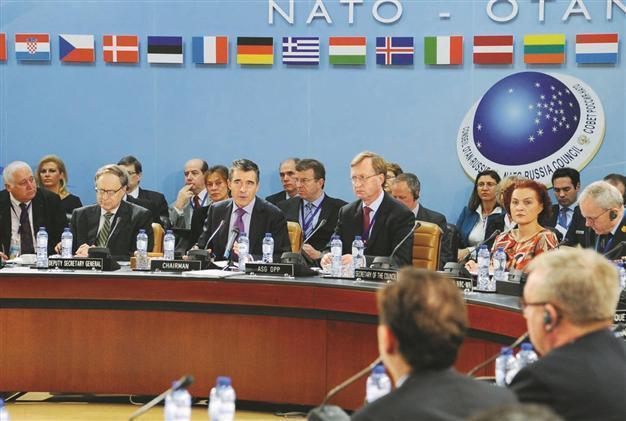Much smaller, much leaner: NATO 3.0
Ahu Özyurt CNN Türk

NATO defense ministers meet this week to consider the alliance's future after it withdraws from Afghanistan in 2014. AA photo
NATO’s Land Command Headquarters in İzmir passed a critical milestone over the weekend. With its 350 personnel from 23 different countries LANDCOM reached its initial operational capability almost three months ahead of its schedule. During our visit to the headquarters in the western province of İzmir, Lt. Gen. Frederick Ben Hodges, the Commander of LANDCOM told CNN Türk exclusively what will the face of the new NATO be, and why NATO would not allow Chinese missiles into its system.
“Think of the new NATO as software 3.0” Hodges said. “The 1.0 version was the cold war version. After the Soviet Union collapsed, with the 2.0 version NATO for the first time in its history went out of its traditional area to places like Kosovo, Bosnia, Afghanistan and somewhat Libya. Now with the 3.0 version we are talking about a much smaller, much leaner organization.”
The general then explained with its new structure, the Alliance needs to address several challenges in a much bigger geography.
“With several thousands of positions eliminated, it is more affordable. But this is going to require a much higher level of interoperability. The threats are piracy, cyber-attacks, and certainly NATO will be involved in capacity building in places like Afghanistan.”
Recently, the Libyan government requested NATO to be involved in security capacity building, and the Secretary General Rasmussen announced that the Alliance will be willing to help. When in full capability, the İzmir Headquarters will be able to connect all other Land forces, training areas, schools and exercises from one central Command on a communications infrastructure, making it one of the three main Command Headquarters of NATO, with AIRCOM in Germany and MARCOM in Great Britain.
‘You can still buy Chinese… but…’Hodges was also frank about Turkey’s decision to buy the air defense systems from a Chinese producer. “Every sovereign nation is free to invest in whatever military technology they want,” he said, “but being a part of an alliance has requirements of interoperable systems, principles and mechanisms.”
“I think it is a problem,” said Hodges and continued, “That system will never be able to integrate into the NATO anti-ballistic missile system. When you think about how modern weapons are used, you have contractors, you have software development, all sorts of aspects that you can’t just plug into an existing network and not expect to have any problems.
In terms of security reasons, cyber, etc. So NATO will never allow, in my view should never allow a Chinese designed system to be able to plug into the NATO Integrated Missile Defense System. That’s why this is a problem. Not because you are not buying from a U.S. or French Company. It is not about economics, it is about interoperability; that system will never be able to work with NATO Systems”
